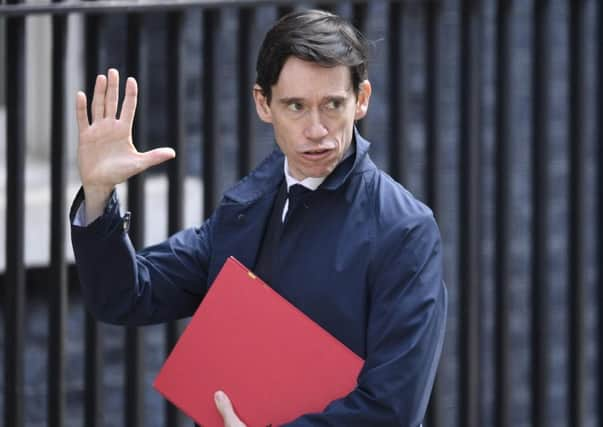Why Rory Stewart’s resignation should worry us all – leader comment


The resignation of Rory Stewart from the Conservative Party is not just about him. It’s also not just about his views on the EU, his failed leadership bid or even his support for international aid. It is about a political party that no longer has space for genuine political discourse.
His decision to quit was celebrated by some party members, supporters and worst of all, MPs, on social media – in keeping with how lacking in grace, how partisan and mendacious, public debate has become. Stewart voted three times for Theresa May’s Brexit deal and yet some castigated him as a “die-hard Remainer”. If other MPs, including hardcore Brexiteers, had voted with him, the UK would have left the EU in March. Truth is vital in any democracy and if we descend into lies, meaningful conversations about real issues are impossible.
Advertisement
Hide AdAdvertisement
Hide AdHonest critics of Stewart’s views would acknowledge that his reasoned and thoughtful style enables him to cut through to the public in a way many other elected representatives struggle to replicate. His campaign rallies attract people from across the political spectrum, not just Conservative voters, but Liberal Democrats and centrist Labour supporters too.
So there should have been a place for him in the Conservative Party – for its own sake. Some described Stewart’s resignation as the “last rites” for moderate Conservatism, following the resignations of Amber Rudd, Boris Johnson’s brother Jo, Ruth Davidson as Scots Tory leader, and others. Who will be next to go?
This ideological cleansing is mirrored by events in the Labour Party, where centrists are being driven out by Jeremy Corbyn’s supporters, with even deputy leader Tom Watson recently facing an aborted attempt to oust him.
The party that realises the benefits of being an open, tolerant, broad church is the one which is likely to succeed in the long run. Hot-heads who tolerate no dissent from their dogma sometimes burn brightly, but almost always their support splutters out.
If neither party chooses this return to relative decency, sanity even, moderate liberal Britain may well rise up to fashion a new force in this country’s politics with the Lib Dems in pole position to benefit. However, if this does not happen, there is a risk that politics will become increasingly extreme and, amid the post-Brexit economic turmoil, the UK will start moving towards dangerous territory.